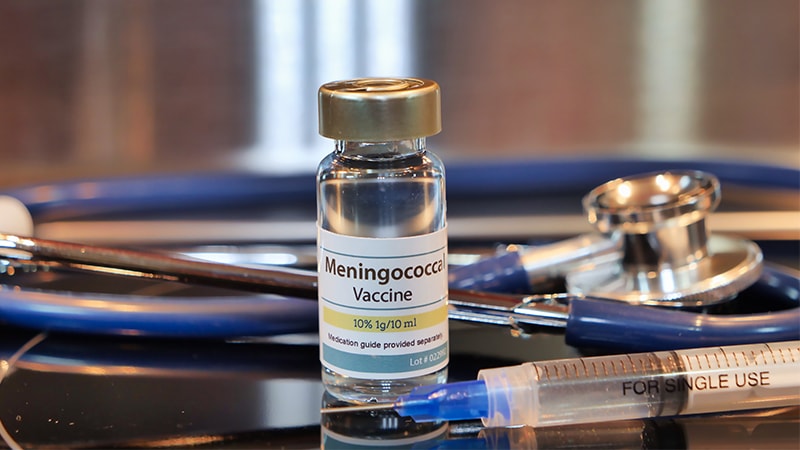A vaccination campaign against meningococcal B bacteria has been launched in the Chambéry and Lyon-East regions of France. This campaign follows an increase in cases of infection since June 2022 with a new variant.
According to recommendations, vaccination against meningococcal B bacteria has been recommended since April 2022 for all infants under the age of 2. Vaccinations against meningococcal C bacteria are recommended for everyone under the age of 24, and meningitis ACWY vaccinations are advised for people travelling to areas where an epidemic has broken out.
There may be various reasons for vaccination. The goal could be to provide individual protection, to stop the spread of bacteria, and, in the long term, to reach herd immunity, among considerations.
N Meningitidis Bacteria
Meningococcus is a commensal bacterium of the nasopharynx that is spread through nasopharyngeal secretions via close or prolonged contact. Meningococcus is frequently carried in the pharynx, and 5% to 10% of the overall population are carriers at any one time. Invasive meningococcal disease (IMD) may occur in the first 10 days of carrying the bacteria, with the bacteria spreading to the blood. IMD usually presents as meningitis or septicemia. The most severe form is purpura fulminans, which is characterized by septic shock and extensive necrotic purpura. Other clinical forms may also occur, such as arthritis and septic pericarditis, among others.
Mortality
A patient is most likely to contract IMD during early childhood and during adolescence and young adulthood (15 to 24 years of age).
Around 500 cases of IMD are diagnosed each year in France (< 1/100,000 of the population). The disease is fatal in around 10% to 12% of cases, which represents 50 to 60 deaths per year. A plurality of IMD cases is linked to the B serogroup: B (50% of cases), C (10% to 15%), W (10% to 20%), and Y (10% to 15%).
Hyperendemic Activity
Since June 2022, there have been 12 cases of serogroup B IMD reported in Auvergne-Rhône-Alpes, including the death of one infected person. From August 1, 2021, to July 31, 2022, the incidence of serogroup B IMD was two times higher in that region than in the rest of France (0.34/100,000 vs 0.16/100,000 of the population).
Those affected were mostly aged between 16 and 21 years and frequented the Chambéry region and an area in Lyon-East. Different strains of meningococcal B bacteria were identified, including a new variant (B:P1.7-2,4:F1-5:cc41/44) that seems to have established itself in the region.
A local vaccination campaign against meningococcus B was launched. It involved around 30,000 children between the ages of 0 and 2, and young people between the ages of 16 and 24 in the Chambéry region, and 26,000 in the Lyon-East area being invited to be vaccinated. Four departments were targeted, including 90 towns in Ain, Isère, and Rhône, as well as the 115 towns of the Savoie region. The aim of this campaign is to confer individual protection against meningococcal B bacteria. The vaccines have no impact on carrying meningococcal B bacteria and do not stop it from being spread. In other words, it’s not possible to achieve herd immunity.
Meningococcal B Bacteria
Vaccination against B IMD has been recommended since April 2022 for all infants over the age of 2 months and under the age of 2 years, with 3 doses given at 3, 5, and 12 months (Bexsero vaccine). Vaccination against B IMD with Bexsero or Trumenba (from the age of 10 years) is not advised, except in infectious clusters or when it is considered hyperendemic. Nevertheless, vaccination is not recommended for close contacts of sporadic cases of B IMD. Antibiotic prophylaxis is the most effective method here in preventing secondary cases.
Meningococcal C Bacteria
Vaccination against C IMD with a conjugate vaccine is compulsory for all children from the age of 5 months, followed by a booster at 12 months. This second dose must be administered at least 1 month after the first dose and no later than at the age of 24 years. Vaccination is required for admission to group childcare settings for children born after 2018. Anyone aged between 12 months and 24 years who has not had a primary vaccination course is advised to get vaccinated with a single dose.
Meningitis ACWY
The conjugate, tetravalent meningococcal A, C, W, Y vaccine is recommended for the following patients:
-
Those in an endemic area, in particular in the “meningitis belt” in sub-Saharan Africa (from Senegal to Ethiopia) during the dry season, in the event of close and prolonged contact with the local population.
-
Those in an endemic zone, when working in the healthcare sector or with refugees, regardless of the season.
Due to the risk of W IMD for people making the pilgrimage to Mecca (Hajj or Umrah), the ACWY tetravalent vaccine is compulsory to obtain a visa (the vaccine must be administered more than 10 days but less than 3 years from the time of travel). Vaccination with a conjugate, tetravalent A, C, W, Y vaccine is legally valid for 5 years providing that the international vaccination certificate mentions the “conjugate tetravalent meningococcal vaccine.”
This article was translated from Univadis France.
Source: Read Full Article
